For most of us, we probably don't think twice about grabbing a coffee from a café, calling in a tradie or sending our kids off to school. But for some people in remote Australia, these things are hours away.
If you have ever wondered about life on an outback cattle station, this is the story for you. Lisa Edwards shares what it was like for her on School of the Air – and now her kids – and how their station, on the edge of the famous Kati Thanda Lake Eyre, went from 35,000 sheep to none.
While this might seem daunting, there's no doubt about it, life is never dull on Muloorina Station. Located in the South Australian outback, it's home to Lisa, her husband Gareth, two kids Jase and Charlotte, and Lisa's parents Trevor and Cindy Mitchell.
You might not have heard of Muloorina Station (or maybe you have, Lisa is surprised at how many people recognise the name), but it's bordered by Australia's biggest salt lake, the famous Kati Thanda Lake Eyre. It's a landmark now a popular bucket list location for people from across the world to see it either as a colourful, glittering saltpan stretching 144 kilometres, or if they're lucky enough, to catch it after rare floods have transformed it into a spectacular oasis in the desert.
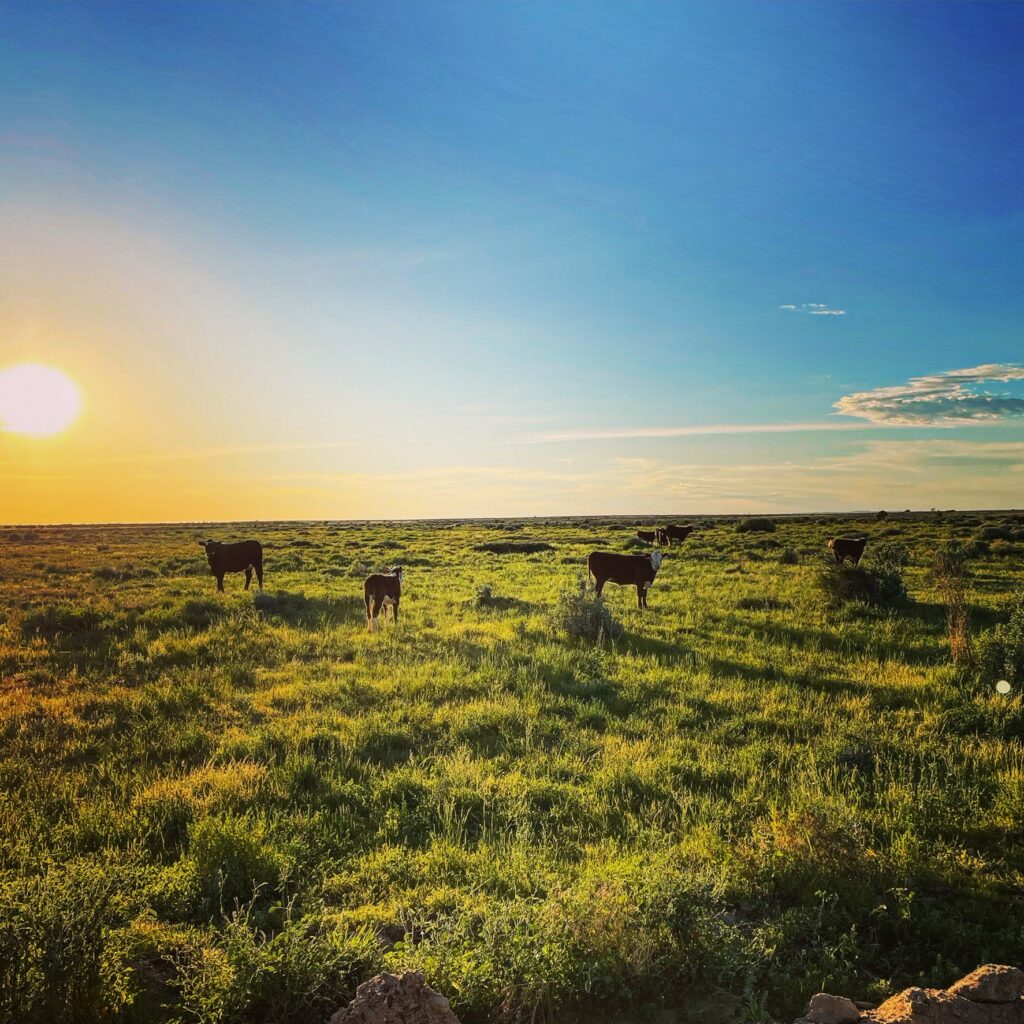
Muloorina's history is one bended by the weather extremes found out here, a place closer to the Queensland, Northern Territory and New South Wales border than the state capital, Adelaide, some 700 kilometres away.
It began as a sheep station in the 1800s before the government bought it for a camel depot. In the 1930s the two Price brothers, who owned a bore sinking business in Peterborough, needed another venture to support the two families and they bought Muloorina.
"Muloorina was eaten out by the camels," Lisa explains. This certainly did not add to the appeal for one of the families to relocate, already a move nearly 500km from home and without a service in sight.
Each family came and spent six months to see what they thought of the place. Neither really loved it so they tossed a coin and the loser had to go to Muloorina.
"Imagine that – you had to pack up your who family to live in a mud brick house in the middle of the camel thrashed desert."
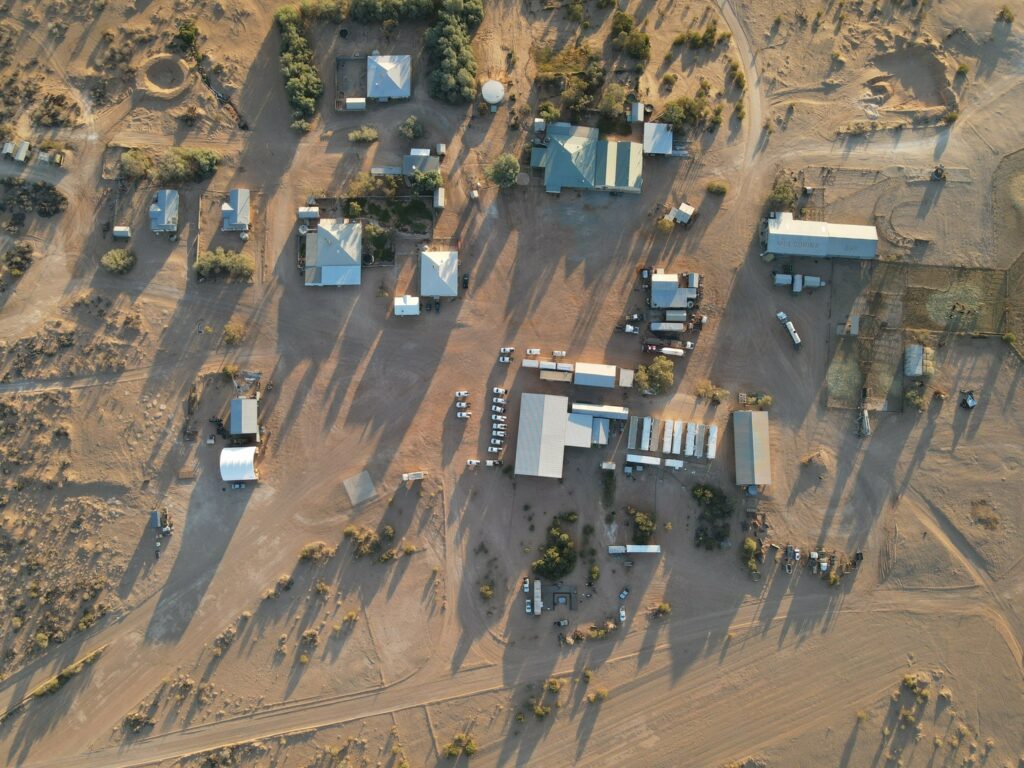
But the land recovered and a love for the property and outback grew. More pastoral leases were bought (and some since sold) to expand Muloorina, which remains in the family.
Breaking tradition
Interestingly, there's a stereotype on farms and stations the son inherits the property. Not so here.
Elliot Price had a son and three daughters and he had six houses built at Muloorina for their families and staff. The Hughes brothers, twins, came out to the station to help build the houses, and fell in love with one of Elliott's daughters and a daughter-in-law.
"I always found it so stupid about sons taking over because grandma bucked that tradition, she ended up with it," Lisa said.
While Lisa's dad and uncle (the latter no longer at Muloorina) took over the property from their parents, Lisa has taken the same path as her grandma. She has stayed on, while her sister and brother are on farms elsewhere.
However, the station is very different from what it was.
Riding and falling from the sheep's back
In her grandma's era it was a big merino sheep station, running up to 35,000 sheep after the big rains of 1974. But Mother Nature had her way. By 1981 they were all gone. Naturally, the rains came again and numbers climbed to 15,000 before a devastating market crash in the 1990s meant the family had to do the unthinkable.
The government was paying sheep producers to shoot their stock, a traumatic black mark in Australia's history, almost too difficult to comprehend.
"After that we made a go with sheep but it was hard as we were outside the dog fence. There were years we were losing 500 to 1000 sheep because sheep had to be moved from inside the fence to outside country for shearing.
"Then wool prices plummeted. We have actually sent a cheque with the truck sending a cheque off with the truck to take the wool away."
Lisa explained Muloorina had always had a small herd of cattle, "but only enough for pocket money and eating". Now it's solely a cattle station, although the impressive woolshed still stands, a place for storage and shade for the horses and cattle in the adjacent yards. It's also not a bad spot for a party.
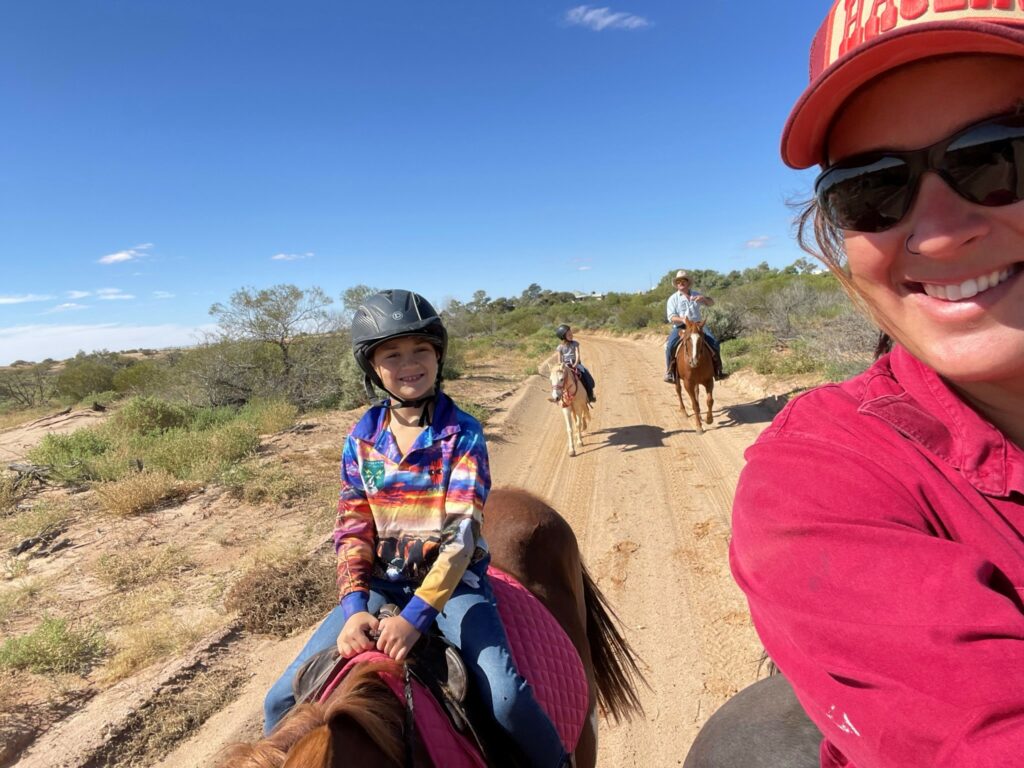
Opportunities in cattle and beyond
The boom and bust of seasons and markets in this part of the world make diversifying difficult. There's no nearby town to get a second job and remote work is a new, post-covid concept.
However, in the late 2000s mining giant BHP found this station family could help with work beyond the boundaries of its Olympic Dam mine at Roxby Downs. Feeding and accommodating workers, plus contract earthworks, has proved a steady and valuable income stream.
"Earthmoving can really hurt an area if not done right, but done well, it can save an area from erosion and degradation," Lisa explains, highlighting how the importance local knowledge brings to a project.
This focus and understanding about land care when building roads, dams or contouring when taking a digger to dirt has reduced - even improved - the environmental landscape and is an area the family wants to start educating others on.
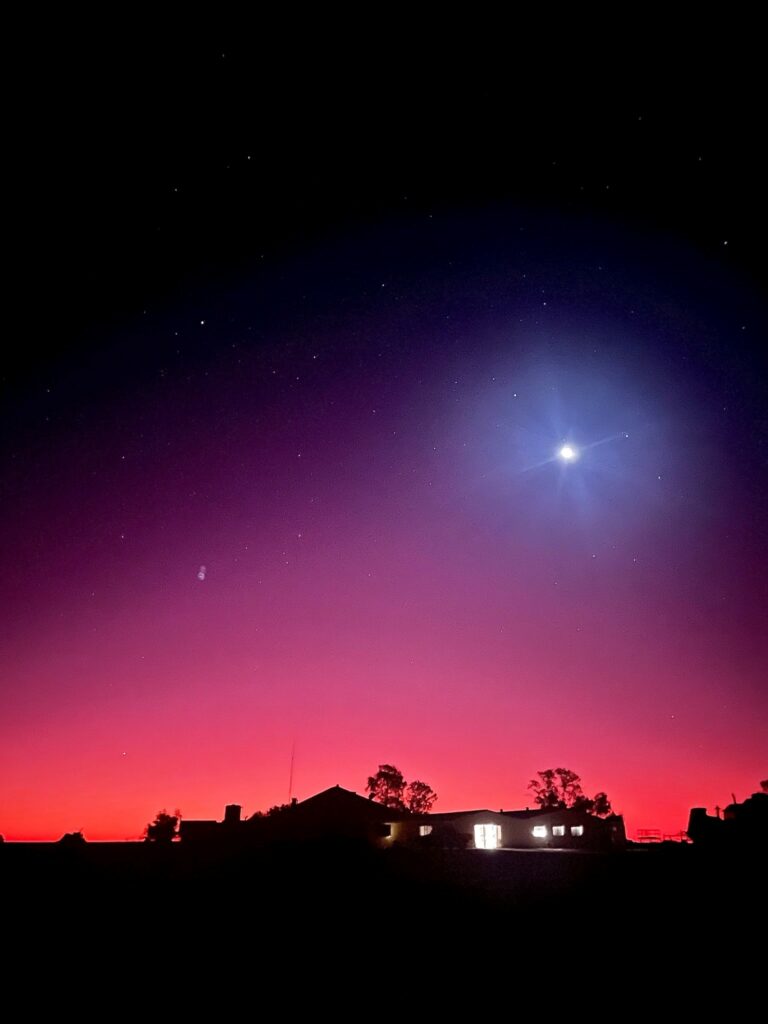
Family aside, if there's anything Lisa cares about, it's the land in which she lives.
"I love the vast openness, I hate not being able to see a horizon. The arid lands are so unique. It's diverse and can change so quickly. You can be standing on what looks like a bitumen road it's so bare from drought, then in one good rain you will be up to your waist in feed."
Schooling in the bush
So, what do people want to know most about life on Muloorina?
"Depends on what generation is asking, older people usually want to know about Donald Campbell who achieved a land speed record on Lake Eyre. It's surprising I've been to some crazy places in the world and they say they've heard of that.
"The younger generation want to know how I go teaching my kids or get food, it's about logistics."
The education path will be similar for Lisa's kids as it was for her, the primary years taught through Port Augusta School of the Air, followed by boarding school in Adelaide. However, these days there are two 50-minute lessons a day taught webinar-style, while Lisa's lessons were via the radio. The rest of the school day is done with a governess - or "govie".
"Teachers make sure they have their cameras on so they can monitor behaviour. Gone are the days when you went to school in your pjs and my kids have already been in trouble for eating in class!"
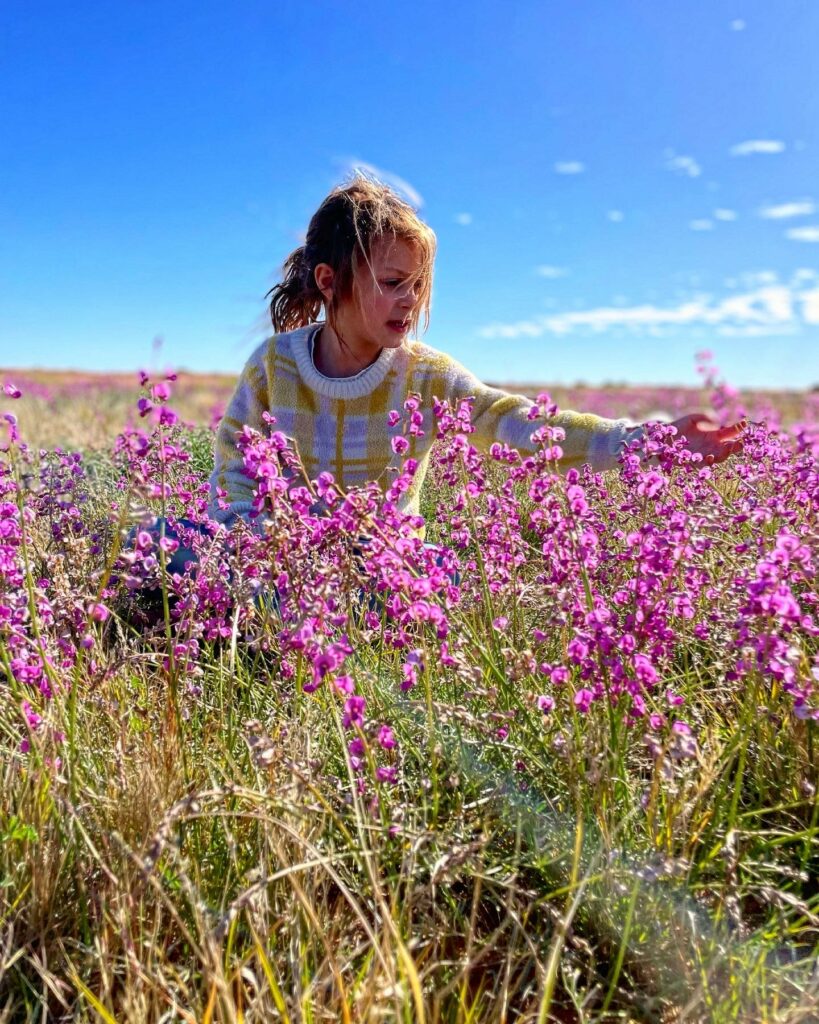
The school year kicks off with an orientation week where students get to meet their teachers and classmates in person. The govies are usually not trained in education, so they also get their own induction on what to do. Throughout the year there are other catch ups, which also involve a camp and sports day.
"The thing about School of the Air is you are trying to raise the most independent, brave and resilient children in Australia.
"Most kids don't fly the nest until they're 18 or 19, but realistically our kids leave home when they go to boarding school when they're 11 or 12."
No tradies for the lady
Lisa's main challenges come from things most people in towns or cities take for granted.
"It's extremely frustrating and hard to find tradespeople. You'll eventually find someone who will travel to the region, then you'll wait six months for them to come, but then they don't rock up."
And while the internet has opened up the communications lines, it also has its pitfalls.
"I am happy it's got to point where having women in agriculture is not taboo, it's almost sought after – I know many people who will gladly hire women over men in ag and even in earthmoving.
"But as a mother in the outback you are expected to be on countless committee and boards and you have to be always available.
"When my mum was my age she would write a letter, send it off and it's two weeks before you have to deal with that issue again, but these days you're expected to reply straight away.
"There are not many options for help, so you're a cook, a cleaner, a truck driver, you're making sure the medicine chest is stocked and you're ready for the next RFDS visit. You're checking waters or cows, fixing pipes. I'm a jack of all trades, master of none."
A lifestyle like no other
But while Lisa feels cliché saying it, it is the lifestyle that comes with it she wouldn't change for the world.
"I love that we have generational friends where we live. I'm friends with people my age and their parents. It's not just a friend you made in school, it could be 60 years of family friendship that filters down.
"Not having many people to choose from gives you the ability to accept people for who they are, you don't just stop being friends with someone because they've been a tool. You learn to put those things aside, enjoy their company and accept them for who they are."
Then there's the creek swims, mild winters and ability for the kids to ride motorbikes and horses – and even operate excavators. But what's the icing on the cake?
"I love my kids can have as many pets as they want…by kids I mean myself!"












